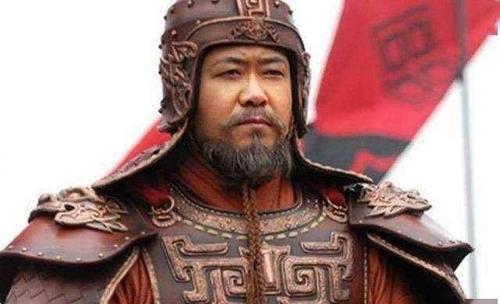Han Feizi once said: The of a thousand zhangs collapses with the nest of ants; the room of a hundred feet burns with the smoke of the gap. "People often say that the details determine success or failure, and if any major event is to be successfully completed, it is impossible to avoid the meticulous elaboration of the subtleties." Many times, a big failure stems from a small negligence, small things can influence the future trend, and small people also have the ability to affect the life of successful people.

Beginning in 770 BC, the decline of the Western Zhou Dynasty made the various princely states increasingly powerful, and began to ignore the hegemony of the Zhou royal family. Behind the rise of the crowd, it is natural that a chaotic world has begun, and various forces have chased the deer in the Central Plains by virtue of their own skills. It was during this period that the Song State quietly rose to prominence, and became one of the "Five Hegemons" through the internal turmoil in Qi.
But despite their powerful names, the gap between the princes was still small, and conflicts occurred all the time, such as Zheng Guo's eyes on the Song Kingdom. However, in the face of this situation, the King of Song was not flustered, only because he had Hua Yuan, a man of great talent, who was enough to resist thousands of troops and horses.
Hua Yuanke was a pure royal aristocrat with ancestral lineages dating back to the Song Dai Gong period. According to the "Chronicle of History", he was free and erudite, extensive in various fields of knowledge, and quite talented. After Song Zhaogong ascended the throne, he began to enter the dynasty as an official, ranking as the "Sixth Qing" as a right division, and was deeply appreciated by the King of Song in both the government and the military.
But although he was appreciated by the monarch, this Song Zhaogong was an out-and-out tyrant. From 619 BC onwards, he practiced tyranny in the country and was indistinguishable. Coupled with a famine, the people did not have a good life. This situation would eventually lead to the collapse of the Song State, so driven by Dayi, Hua Yuan did not hesitate to participate in the coup. In 611 BC, Duke Zhao of Song died in a mutiny, and Gongzi Bao was elected to the throne as Duke Wen of Song.
For Hua Yuan, the elder minister, Song Wengong was very grateful. Not only is it more reused, but it is also given absolute trust. At this time, he can be said to be the most successful person in the Song Kingdom, whether it is power or status, or the merits behind it, he is undoubtedly a big person standing at the apex. However, before he could get away with it, things changed.
In 606 BC, Zheng Guo finally couldn't resist launching a war against the Song State. The general Le Lu led his troops to fight, and Hua Yuan marched forward with the army as the supreme commander. Before the war on the Great Thorn, he encouraged all the soldiers to kill sheep and cook soup, and for a time the morale was like a rainbow. But what he never expected was that he ignored a coachman.
This coachman's name was Yang Shu, and compared with Hua Yuan, he was simply a small person in heaven and on the ground. But despite this, he was already very good at becoming the driver of the chariots in the army with his ability. However, when he saw that the whole army was eating mutton soup but he had no share, a nameless resentment suddenly emerged. He hated the commander who was high above him, and hated his arrogance of "looking down" on the little man.
In the end, in the middle of the big battle the next day, Yang Zhuo finally found an opportunity to take revenge. While Hua Yuan was taking command on the chariot he was driving, he directly turned the front of the car and rushed towards the enemy camp with the commander. According to the "Zuo Biography", he said to Hua Yuan: "The sheep of the past, the son is the government, and today's affairs, I am the government." "At that time, you had the final say on eating sheep, and today is the time for me to decide!" At the end of the conversation, Lian Ren was surrounded by the Zheng army with all the people, the commander was captured, and the Song army was defeated.
Because of a small negligence, the small person yang zhuo single-handedly ruined the great foundation of Hua Yuan and the Song Kingdom, and this matter also left the idiom of "going their own way". Although In the end, Song Wengong ransomed the captive hostages, this defeat had become a stain on Hua Yuan's life, and even the people would laugh at him. Such an ending is really lamentable.